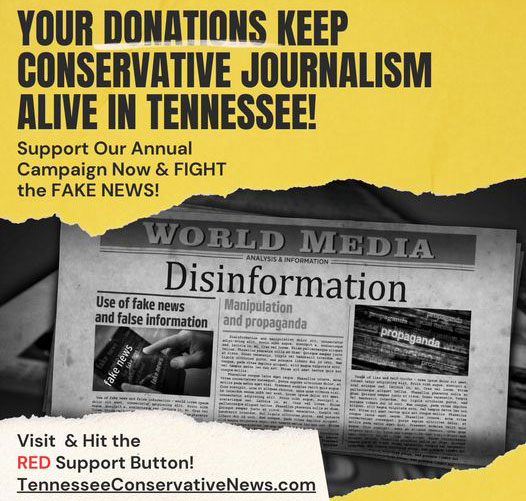Supreme Court Ruling Denying Intervention In Florida’s Drag Show Ban For Minors Does Not Indicate Law Lacks Constitutional Viability.
Image Credit: Anthony Quintano / CC
The Tennessee Conservative [By Kelly M. Jackson] –
Last month, the Supreme Court denied a request for a hearing and injunctive relief requested by the state of Florida while their case over a new law that criminalizes exposure of drag shows to minors is litigated in the 11th Circuit Court of Appeals.
The Protection of Children Act signed by Governor Ron DeSantis makes it a misdemeanor to knowingly admit a child to “adult live performances,” which are in turn defined as one that includes, among other things, “the lewd exposure of prosthetic or imitation genitals or breasts.” Progressive media and political organizations have characterized the law as one that targets drag shows.

The law was challenged by a restaurant and bar in Orlando, Hamburger Mary’s who hosts what they call “family friendly” drag shows and encourages the attendance of children.
Hamburger Mary’s decided to challenge the constitutionality of the order in federal court and received a favorable ruling from Clinton appointed U.S. District Judge Gregory Presnell who barred Florida officials from enforcing the law anywhere in the state, concluding that it violates the First Amendment and the due process clause.
The US Court of Appeals for the 11th Circuit declined to put Judge Presnell’s order on hold, to the degree that it can be applied and enforced in the rest of the state, so Florida took the request to the Supreme Court, to try and get them to initiate a stay while the constitutionality of the law is being litigated in the 11th Circuit.
Florida was unable to convince the Supreme Court that their intervention was necessary.
In his statement, Justice Brett Kavanaugh noted that although the state “strongly disagrees” with the district court’s conclusion that the law violates the First Amendment, Florida “does not raise that issue” in its filings in the Supreme Court.
Instead, Kavanaugh noted, the state was simply seeking to be able to enforce the law against entities that are not a party to the litigation. Whether district courts have the power to enter an order that bars the government from enforcing a law against non-parties is “an important question that could warrant our review in the future.”
But because of the context within which the issue was contained, a First Amendment case which asserts that the law sweeps too broadly, Kavanaugh, in his 3-page brief, called the case an “imperfect vehicle” to consider the procedural question, and the court was therefore, according to all Justices who concurred, correct to deny the review.

The appeal in the 11th circuit is still pending.
Kavanaugh also stated that this decision to deny injunctive relief to Florida “indicates nothing about our view on whether Florida’s new law violates the First Amendment.”
In essence, the procedural question being raised by the state of Florida, would eventually be worked out at the lower court and would therefore not become an issue before the Supreme Court ever again, so the justices saw no need to intervene.
What implications does this decision by the Supreme Court have on Tennessee and its current legal battle taking place in the 6th Circuit Court of appeals? Very little.

In Tennessee, the 6th Circuit court enjoined the law from being enforced, barring the Shelby County DA from enforcing it in the Western District.
In the case in Florida, Judge Presnell enjoined the entire state from having the ability to enforce the law, until the 11th Circuit Court of Appeals had the opportunity to determine the constitutionality of the law in Florida.
In other words, the Supreme Court decision here, does not indicate that the law in Tennessee would fare either better or worse in the 6th Circuit, because the issue they were presented with had nothing to do with the constitutionality of the laws in either Florida or Tennessee.
Incidentally, Justices Thomas, Alito and Gorsuch, widely considered the most conservative on the court, were amenable to issuing the stay Florida was requesting.
The 6th Circuit Court of Appeals will hear arguments on the constitutionality of Tennessee’s Adult Entertainment Act at an undetermined date.
We will continue to cover this story as it develops.


About the Author: Kelly Jackson is a recent escapee from corporate America, and a California refugee to Tennessee. Christ follower, Wife and Mom of three amazing teenagers. She has a BA in Comm from Point Loma Nazarene University, and has a background in law enforcement and human resources. Since the summer of 2020, she has spent any and all free time in the trenches with local grassroots orgs, including Mom’s for Liberty Williamson County and Tennessee Stands as a core member. Outspoken advocate for parents rights, medical freedom, and individual liberty. Kelly can be reached at kelly@tennesseeconservativenews.com.



2 Responses
Great article. Thank you. Well done.
Good article but I disagree with the SCOTUS reasoning. Many of these “family friendly” show are not advertised far enough in advance which I consider a deliberate attempt to catch some people unawares. I would be a very unhappy camper if I came upon one of these shows with my children. I would never knowingly take any child to one of these “sexualization seminars” which they call good clean fun. Just my opinion but I think an injunction was justified. Here in TN., towns, cities and schools break the law every day with these shows and parades. If I still had children in school, they would not be attending a school that permitted those shows. I don’t deal with businesses that support these people. I’m not against the shows or the antics in an adult atmosphere. That’s where it belongs and I don’t think much of parents who take their kids to such things.